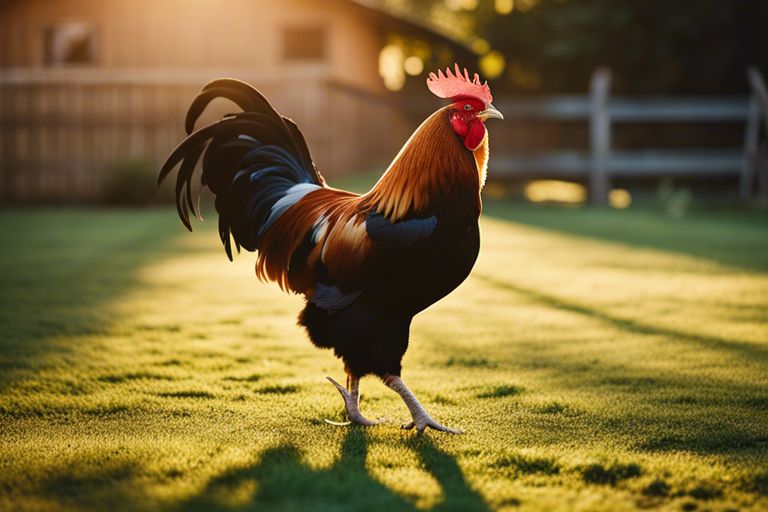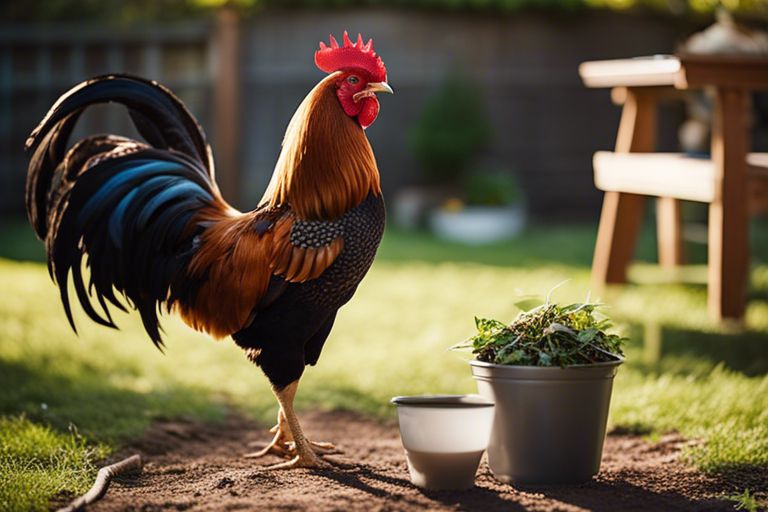Most rooster owners know that establishing respectful behavior in these magnificent birds is crucial for a harmonious relationship. Roosters can be strong-willed and territorial, but with the right training techniques, they can become well-mannered and obedient companions. In this blog post, we will provide you with expert tips on how to train your rooster effectively, promoting respect and cooperation in your feathered friend.
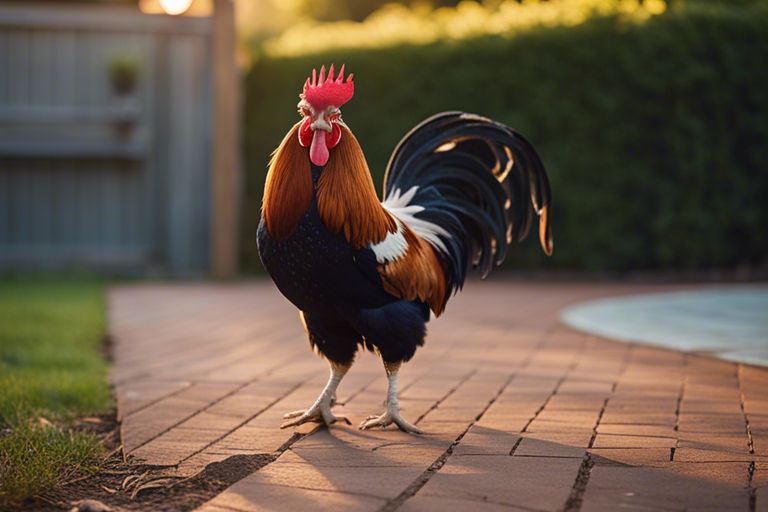
Preparing for Training
Creating a Suitable Environment
While preparing to train your rooster, one of the vital aspects is creating a suitable environment. Ensure the training area is free from distractions, such as loud noises or other animals. A calm and quiet space will help your rooster focus and respond better to training cues.
Essential Supplies for Effective Training
To effectively train your rooster, invest in important supplies such as a clicker, treats, and a suitable training stick. The clicker will help mark desired behaviors, treats will serve as motivation, and a training stick can be used to guide your rooster during training sessions. These supplies will aid in establishing clear communication with your rooster and reinforce positive behaviors.
Understanding the importance of these important supplies is crucial for successful training sessions. The clicker serves as a consistent marker for desired behaviors, while treats act as a valuable reward for your rooster’s cooperation. Additionally, a training stick can assist in providing gentle guidance and direction during training exercises. By having these supplies readily available, you can create a structured and effective training routine for your rooster.
Core Training Techniques
Establishing Your Role as the Flock Leader
Your first step in training your rooster is to establish yourself as the flock leader. This means setting boundaries, enforcing rules, and being consistent in your interactions with your rooster. Show confidence in your actions and be firm but fair in your leadership. Roosters are naturally inclined to follow a strong leader, so by asserting your authority, you will earn your rooster’s respect and cooperation.
Reward-Based Training versus Discipline
Your approach to training your rooster will largely depend on whether you choose to use reward-based training or discipline. While discipline can be effective in correcting unwanted behavior, reward-based training is often more successful in reinforcing positive behaviors. By using treats, praise, and other rewards, you can motivate your rooster to comply with your commands willingly. Keep in mind, a happy rooster is a cooperative rooster.
Techniques such as clicker training, target training, and positive reinforcement can all be effective in training your rooster. By using a combination of these techniques and adjusting your approach based on your rooster’s responses, you can establish a strong bond with your rooster while promoting respectful behavior. Keep in mind, consistency and patience are key when training your rooster, so stay persistent and never give up!
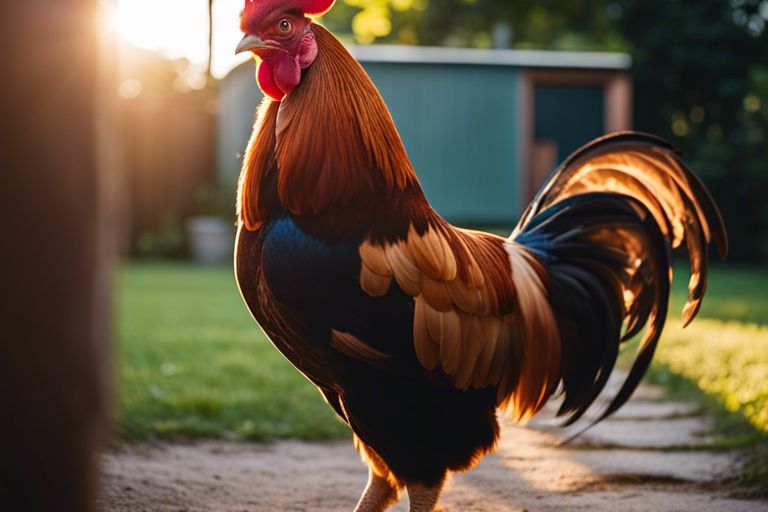
Handling Aggression
Identifying Triggers of Aggressive Behavior
Behavioral issues in roosters can often be linked to specific triggers that cause aggressive behavior. Common triggers include feeling threatened by humans or other animals, protecting their territory, feeling stressed or frustrated, or reacting to past negative experiences. By observing your rooster’s behavior closely, you can identify these triggers and take steps to address them.
Strategies for Mitigating and Redirecting Aggression
Aggressive behavior in roosters can be alarming and challenging to manage, but there are strategies you can use to help mitigate and redirect aggression. One effective approach is to establish yourself as the dominant figure in the flock through consistent training and assertive body language. Additionally, providing ample space, enrichment activities, and structured routines can help reduce stress and prevent aggressive outbursts.
Mitigating aggressive behavior in roosters requires a combination of proactive measures and quick responses to prevent escalation. By identifying triggers and implementing appropriate strategies, you can create a safer and more harmonious environment for both your rooster and the rest of the flock.
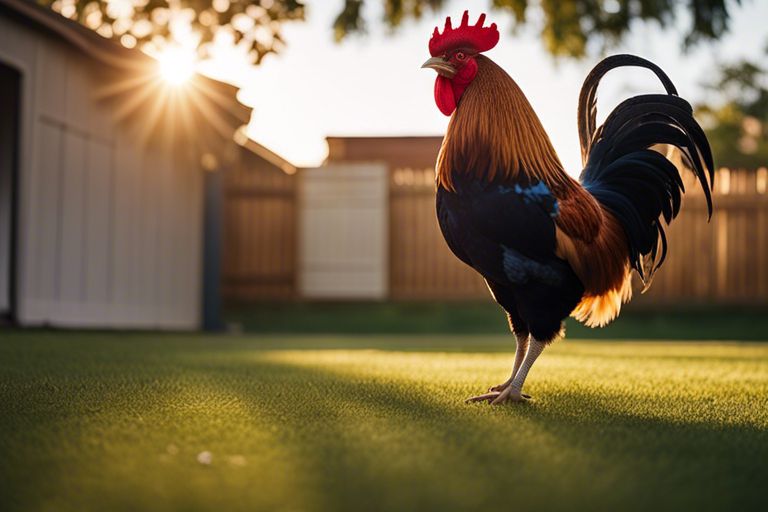
Advanced Training and Socialization
-
- Your Rooster:
| Advanced Training | Socialization |
| Advanced training will help your rooster master more complex commands and behaviors. | Socialization is key to ensuring your rooster is comfortable and at ease around humans and other animals. |
Encouraging Positive Interactions with Humans and Other Animals
With consistent training and exposure, your rooster can learn to have positive interactions with humans and other animals. It’s important to slowly introduce your rooster to new people and animals, using positive reinforcement techniques such as treats and praise to reward good behavior. Always supervise interactions to ensure safety and intervene if necessary.
Reinforcing Training and Maintaining Good Behavior
Socialization is an ongoing process that requires regular reinforcement of training and good behavior. Continue to engage your rooster in positive interactions with humans and other animals to reinforce their training. Consistency is key in maintaining respectful behavior and ensuring your rooster remains well-socialized.
To wrap up
With this in mind, it is crucial to establish respectful behavior in your rooster through proper training techniques. By setting clear boundaries, providing consistent leadership, and using positive reinforcement, you can ensure a harmonious relationship with your feathered friend. Remember to be patient and consistent in your training efforts, as it may take time for your rooster to fully understand and comply with your expectations. With dedication and perseverance, you can effectively train your rooster to exhibit respectful behavior and become a well-behaved member of your flock.
FAQ
Q: Why is it important to establish respectful behavior in roosters?
A: Establishing respectful behavior in roosters is crucial for maintaining a harmonious relationship and ensuring your safety when handling them.
Q: How can I train my rooster to exhibit respectful behavior?
A: Training your rooster involves consistent reinforcement of positive behaviors, setting boundaries, and using gentle but firm methods of correction.
Q: What are some tips for establishing respect with my rooster?
A: Some tips include spending quality time with your rooster, using positive reinforcement techniques, and being consistent in your training methods.
Q: How can I show dominance without being aggressive towards my rooster?
A: You can show dominance by using body language, maintaining a calm and confident demeanor, and establishing yourself as the leader through consistent training.
Q: Why is consistency important in training roosters?
A: Consistency helps roosters understand what is expected of them and prevents confusion, leading to quicker and more effective training results.
Q: What should I do if my rooster displays aggressive behavior?
A: If your rooster displays aggressive behavior, it is important to address it immediately by using redirection techniques, seeking professional help if needed, and ensuring your safety.
Q: How long does it typically take to train a rooster to exhibit respectful behavior?
A: The time it takes to train a rooster varies depending on the individual bird, but with consistent training and patience, most roosters can learn to exhibit respectful behavior within a few weeks to a few months.
